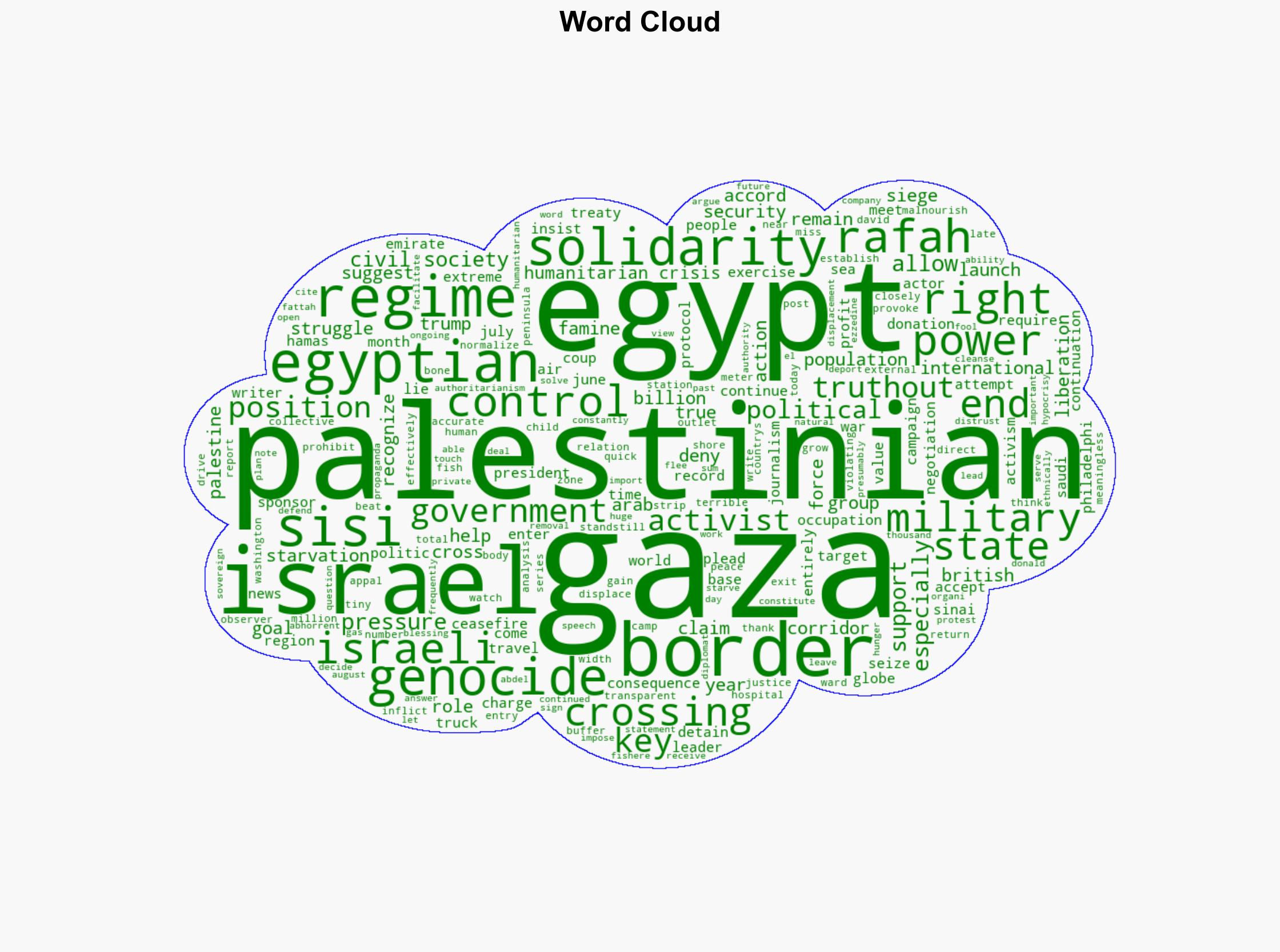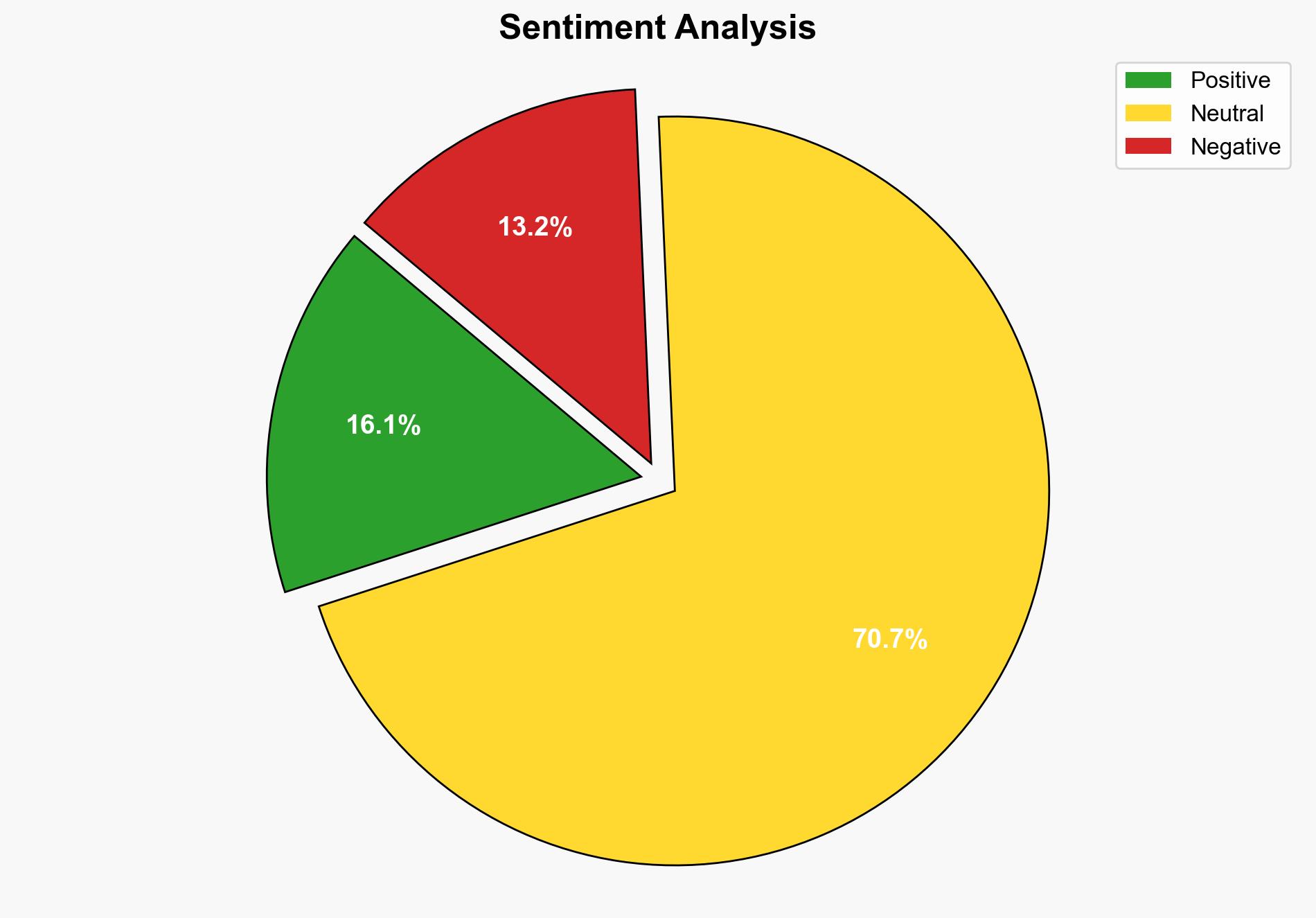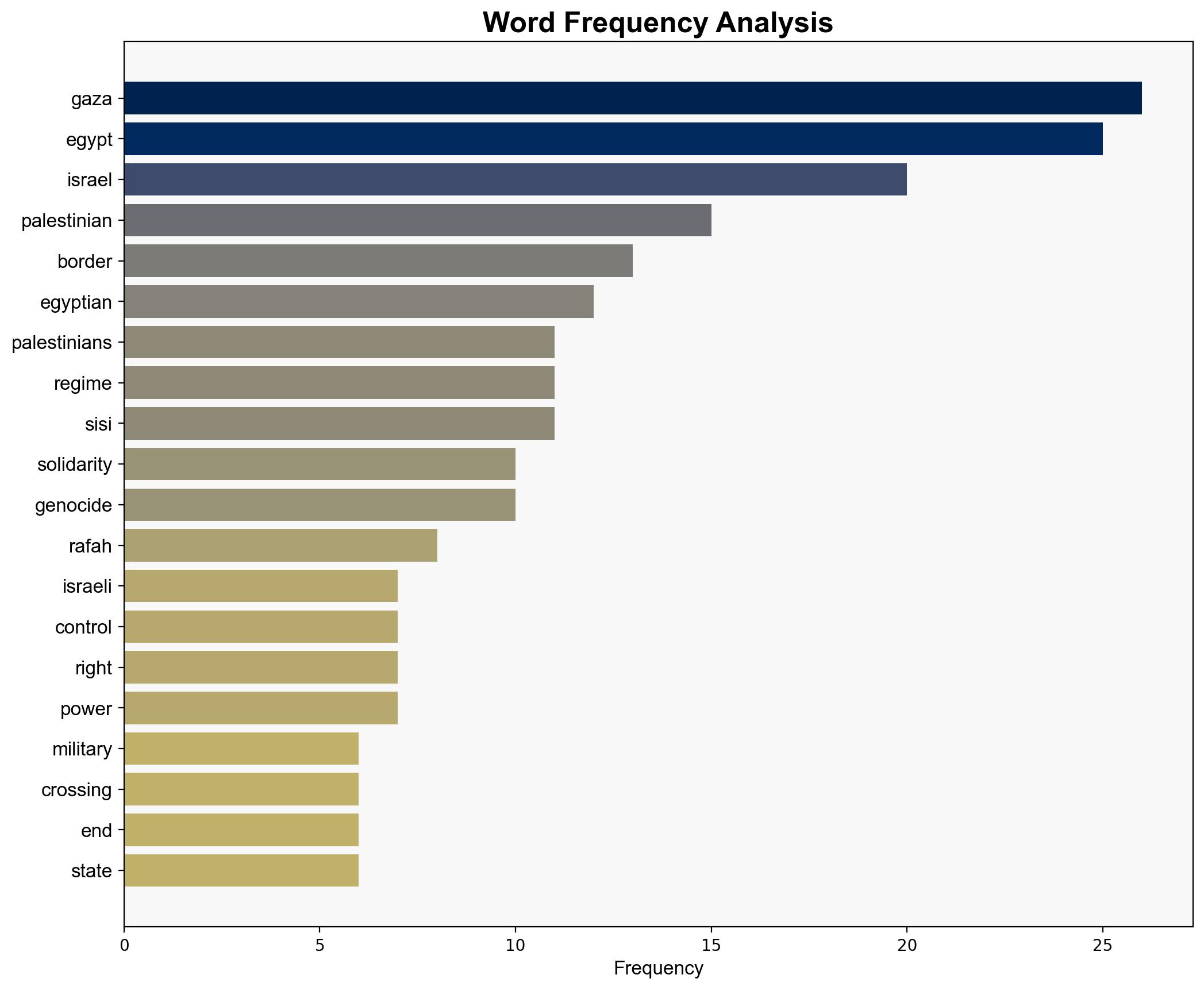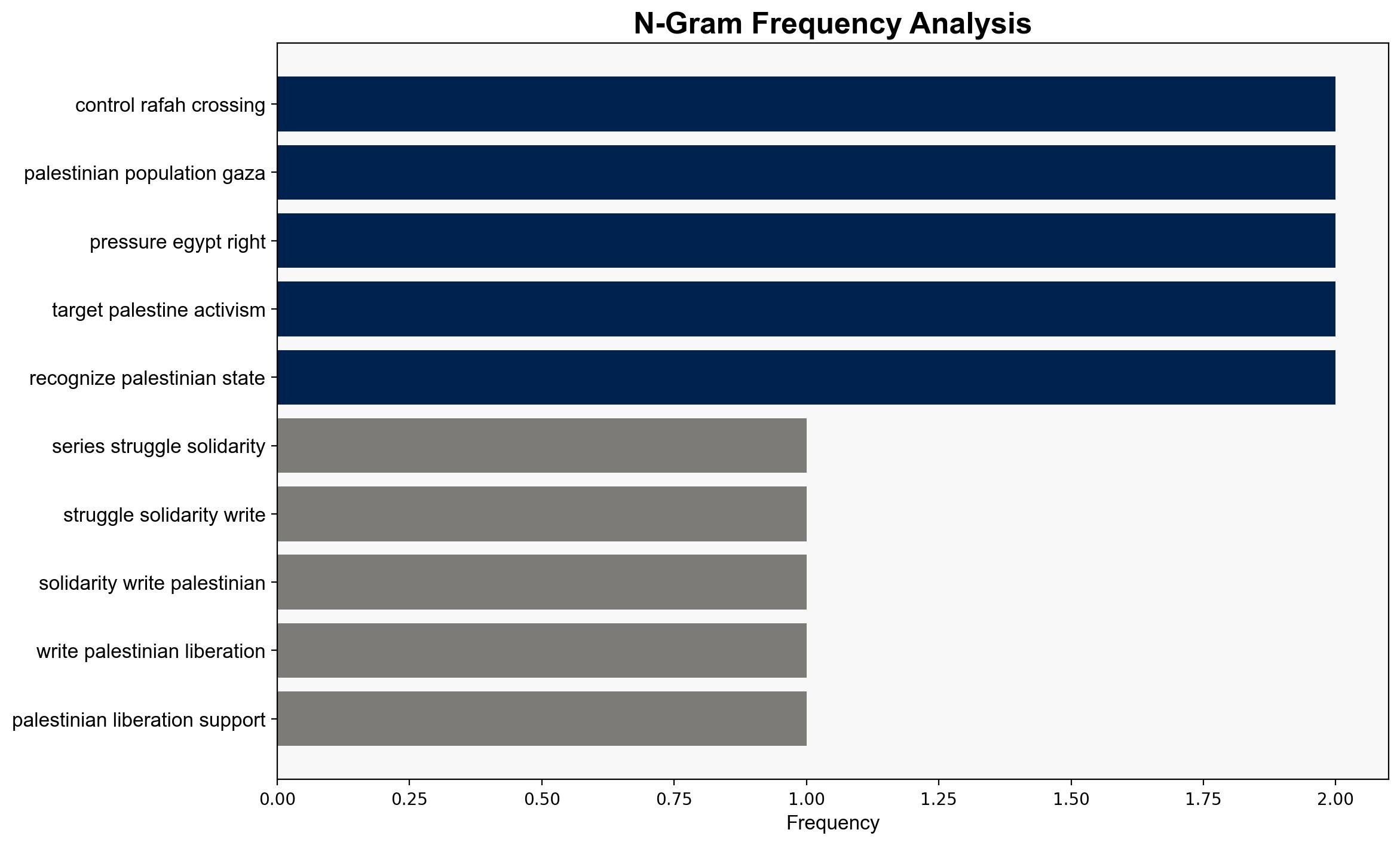Egypt Has Leverage Against Israel Why Doesnt Sisi Use It – Truthout
Published on: 2025-08-25
Intelligence Report: Egypt Has Leverage Against Israel Why Doesn’t Sisi Use It – Truthout
1. BLUF (Bottom Line Up Front)
The most supported hypothesis is that Egypt’s President Abdel Fattah el-Sisi is strategically choosing not to leverage Egypt’s control over the Rafah crossing to maintain regional stability and secure economic interests with Israel. Confidence in this assessment is moderate due to the complexity of regional dynamics and potential undisclosed motivations. Recommended action includes monitoring Egypt-Israel relations for shifts in policy and preparing for potential humanitarian interventions in Gaza.
2. Competing Hypotheses
1. **Hypothesis A**: Sisi is not using Egypt’s leverage over Israel due to economic dependencies and political alliances, particularly the recent natural gas deal with Israel and the need for U.S. support.
2. **Hypothesis B**: Sisi’s inaction is due to internal political considerations, including maintaining control over dissent and avoiding domestic unrest that could arise from a more aggressive stance against Israel.
Using the Analysis of Competing Hypotheses (ACH) 2.0, Hypothesis A is better supported. The economic ties and international political dynamics provide a more consistent explanation for Sisi’s actions than internal political considerations alone.
3. Key Assumptions and Red Flags
– **Assumptions**: It is assumed that economic interests and international relations are the primary drivers of Sisi’s policy decisions. Another assumption is that Egypt’s control over the Rafah crossing is a significant leverage point.
– **Red Flags**: The potential for undisclosed agreements between Egypt and Israel that could influence Sisi’s decisions. The lack of transparency in Egypt’s internal political dynamics could obscure true motivations.
– **Blind Spots**: The potential influence of other regional actors, such as Saudi Arabia or the UAE, on Egypt’s policy towards Gaza and Israel.
4. Implications and Strategic Risks
– **Geopolitical**: Continued inaction by Egypt could exacerbate the humanitarian crisis in Gaza, increasing regional instability and potentially drawing international intervention.
– **Economic**: Egypt’s economic ties with Israel could be strained if public opinion shifts significantly against perceived complicity in the Gaza situation.
– **Psychological**: Sisi’s perceived inaction could fuel anti-government sentiment within Egypt, potentially leading to increased domestic unrest.
5. Recommendations and Outlook
- Monitor Egypt-Israel economic agreements for signs of strain or renegotiation.
- Prepare for humanitarian interventions in Gaza if the situation deteriorates further.
- Scenario Projections:
- Best Case: Egypt leverages its position to broker a ceasefire, improving regional stability.
- Worst Case: Escalation of violence in Gaza leads to broader regional conflict.
- Most Likely: Continued status quo with periodic diplomatic interventions.
6. Key Individuals and Entities
– Abdel Fattah el-Sisi
– Donald Trump
– Ezzedine Fishere
7. Thematic Tags
national security threats, regional focus, geopolitical dynamics, humanitarian crisis





